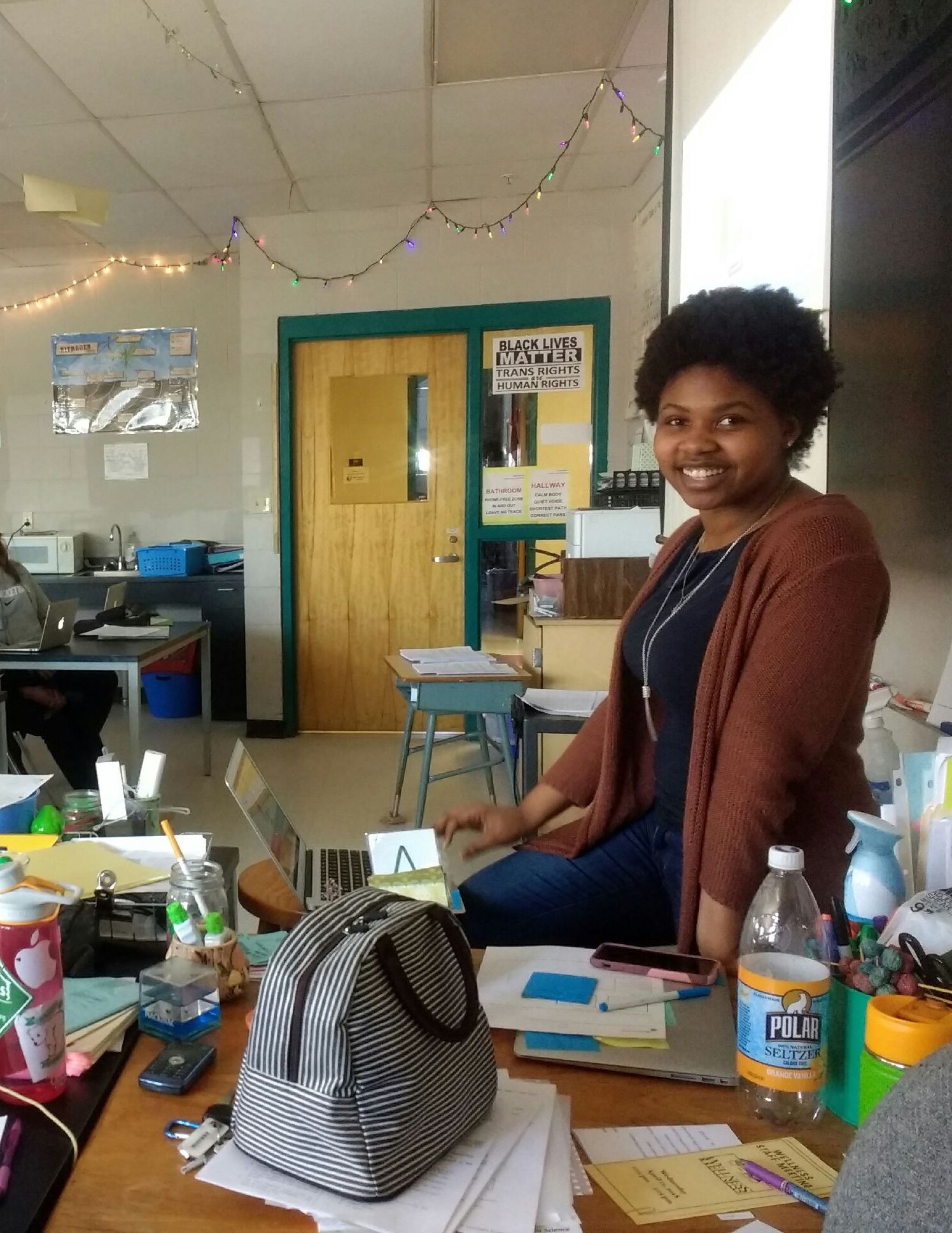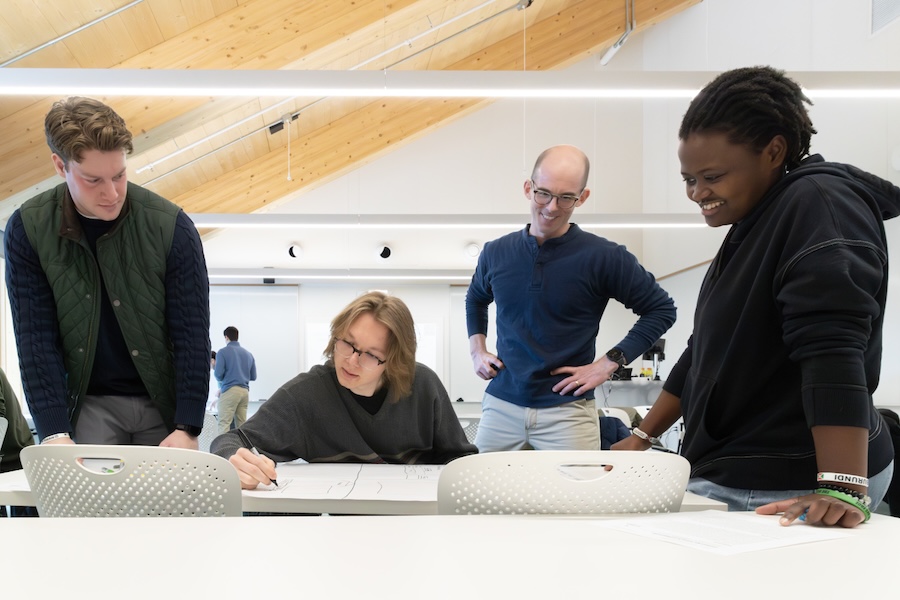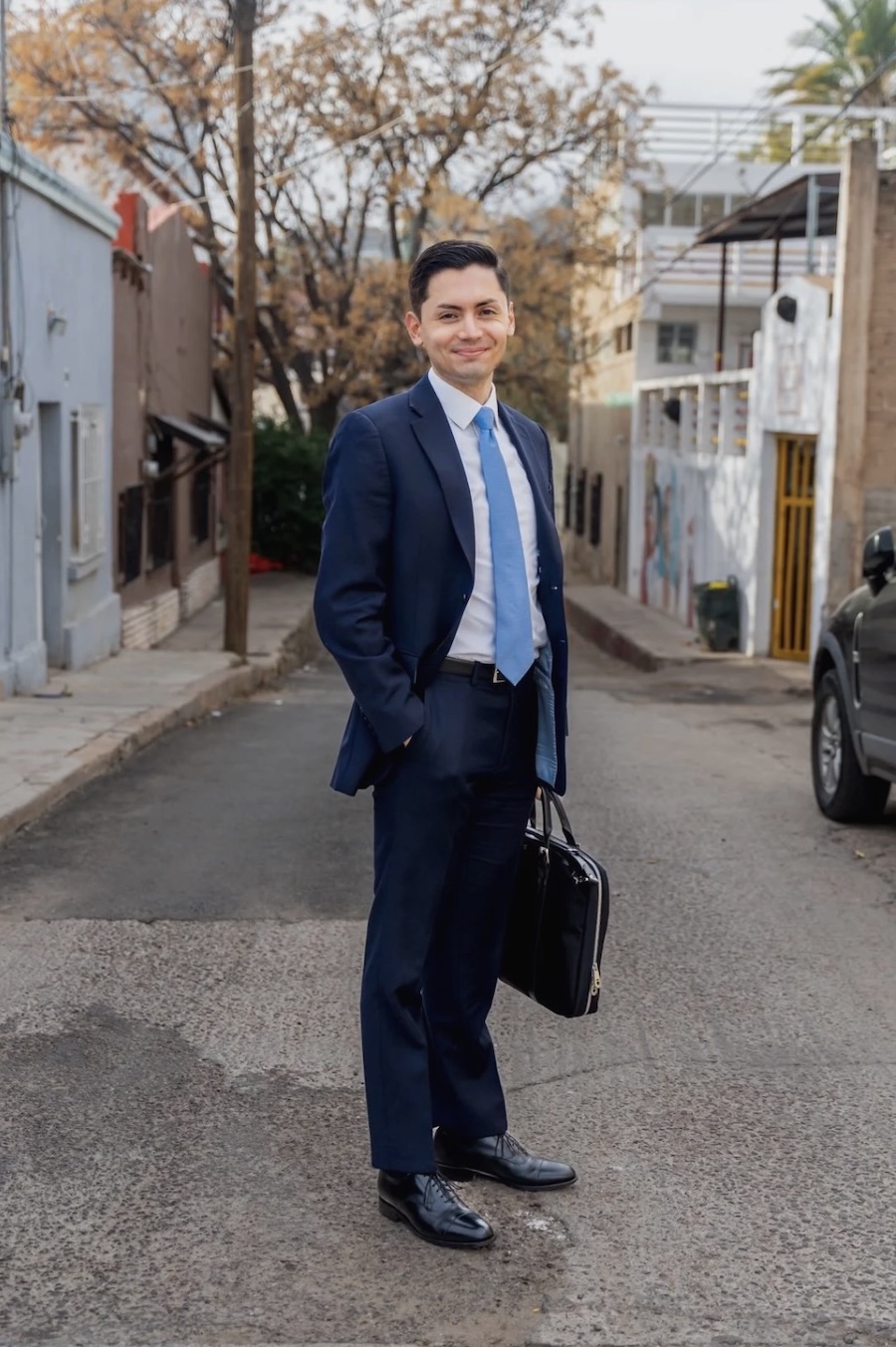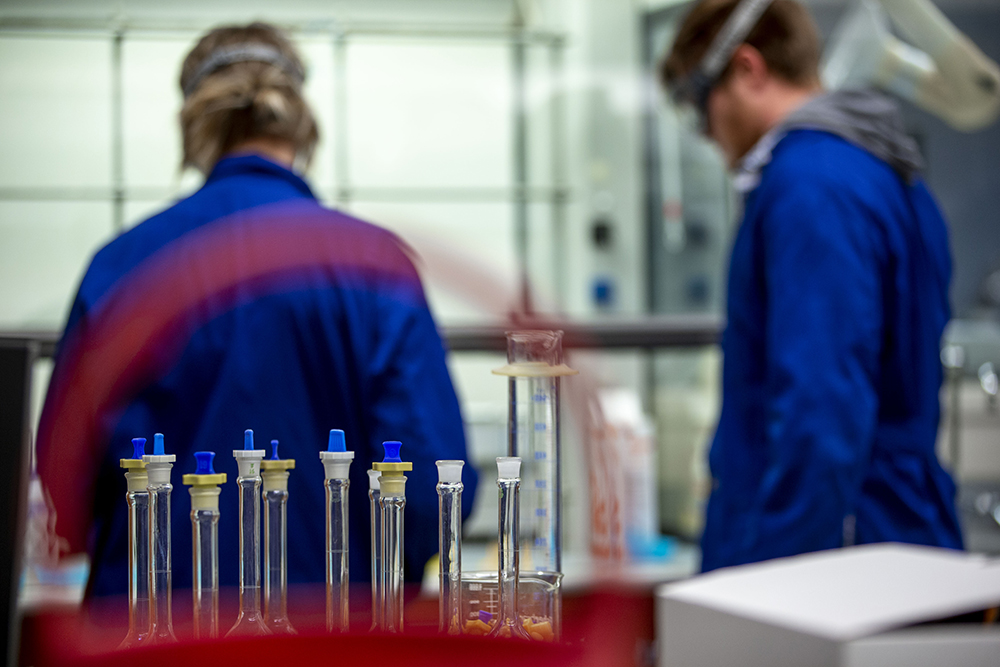Science Teacher Olivia Bean ’17 Wins Prestigious Teaching Fellowship
By Rebecca Goldfine
The Knowles Teacher Initiative comprises a highly selective national network of teachers who are given professional development, mentoring, and financial support over five years before becoming senior fellows in the program. Approximately thirty-five new fellows are selected each year.
"I'm excited for the new connections I'll make and the ideas that can come from them," Bean said, explaining that anytime you start talking about teaching with fellow teachers, ideas begin to percolate.
Bean, who is from Cleveland, Ohio, graduated from Bowdoin in 2017 after double majoring in chemistry and education. After completing the Bowdoin Teacher Scholars program last year, she began her first teaching job at Portland High School.
She teaches college preparatory and honors earth science to about one hundred ninth-grade students, as well as a freshman seminar to help students develop advanced academic skills.
"I love teaching in Portland as a district," Bean said. "I love the community and values of the school. The people I work with are all great, and the school has diversity, which is important to me."
Assistant Professor of Education Alison Riley Miller said the award reflects Bean's commitment to excellence and equity in science education. "During her time at Bowdoin, Olivia demonstrated a passion for both chemistry and education, as well as a personal commitment to understanding and dismantling the barriers that deter underrepresented groups from entering STEM fields," she said.
Only five percent of black women get degrees in STEM fields, according to Associate Professor of Education Doris Santoro, who then praised Bean for not only excelling in chemistry, but then also choosing to enter education. "Representation matters," she said. And Bean, she added, is a model for her students.
"Olivia is a gifted teacher who makes kindness, compassion, and a sense of humor a part of her classroom," Santoro said. "She shows students how science is infused in their everyday lives. She makes school a joyful place to be."
Christine Braceras, who teaches with Bean at Portland High School, agreed that Bean is a role model for students, and that she "rarely has a minute alone as waves of ninth graders come into her room for help or just to talk." She added that the Fellowship will enable Bean to "bring new and exciting content, technology, and science methodology to her students and to the high school staff."
Among the many gifts of the Knowles fellowships are annual grants or stipends—roughly $9,000 this year—that can help pay for continuing education or certification training. They can also be used for the development of new lessons and classes, and also used to introduce new programming for teacher colleagues.
Bean has already begun dreaming about ways to use the extra funding. For one, she'd like to learn new strategies for teaching science to English-language learners (Portland has a sizable population of refugees and immigrants).
And she'd like to prepare new electives for her school—like the chemistry of cooking or astronomy—to increase students' excitement about science.
"Every year, Acadia National Park [in Maine] has a star-gazing festival with experts," Bean said. The grant could cover the cost of the trip for the group. "It's really cool from a nature perspective and a science perspective."
Bean is also thinking about organizing a retreat for her fellow science teachers so they can devise an academic plan for students to progressively advance their science skills over the four years of high school.
"Knowles is about not just individual teachers, but teacher leadership and helping the profession beyond the classroom," Bean said.



